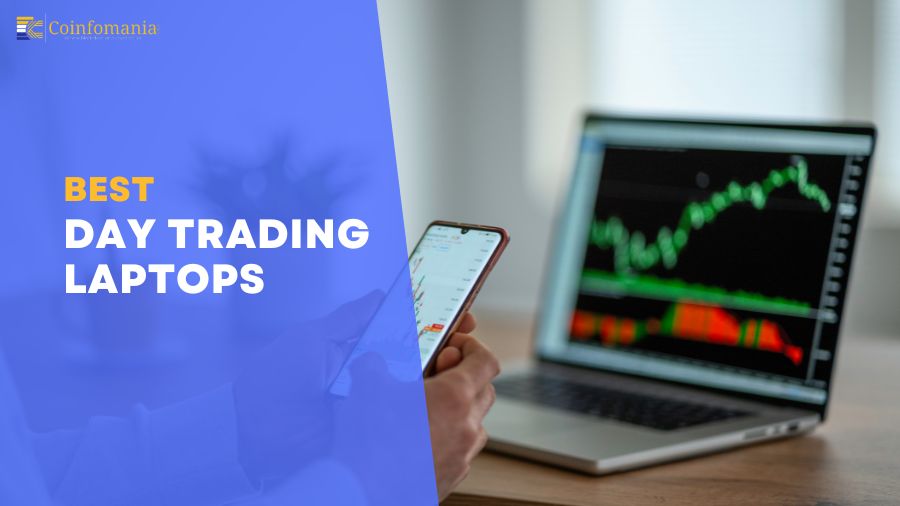Day trading requires you to make split-second decisions to book the most profit possible. Therefore, the right laptop can make all the difference, as it can help you with fast data processing, trade execution, and market monitoring.
To help you make the right choice, our team at Coinfomania reviewed the best day trading laptops in the market and listed the best ones below based on their performance, configuration, and overall value for money –
- Dell XPS 15 – Best for Beginners
- Apple MacBook Pro 14 – Best for macOS Users
- Asus ZenBook 13 – Best Portable Laptop
- Lenovo ThinkPad X1 Carbon – Best Build-Quality
- HP Spectre x360 14 – Best 2-in-1 Day Trading Laptops
- Acer Swift 3 – Best Budget Laptop for Day Trading
- Microsoft Surface Laptop 4 – Best for Business Professionals
- Alienware M15 R6 – Best for High-Performance Trading
Best Day Trading Laptops
Dell XPS 15
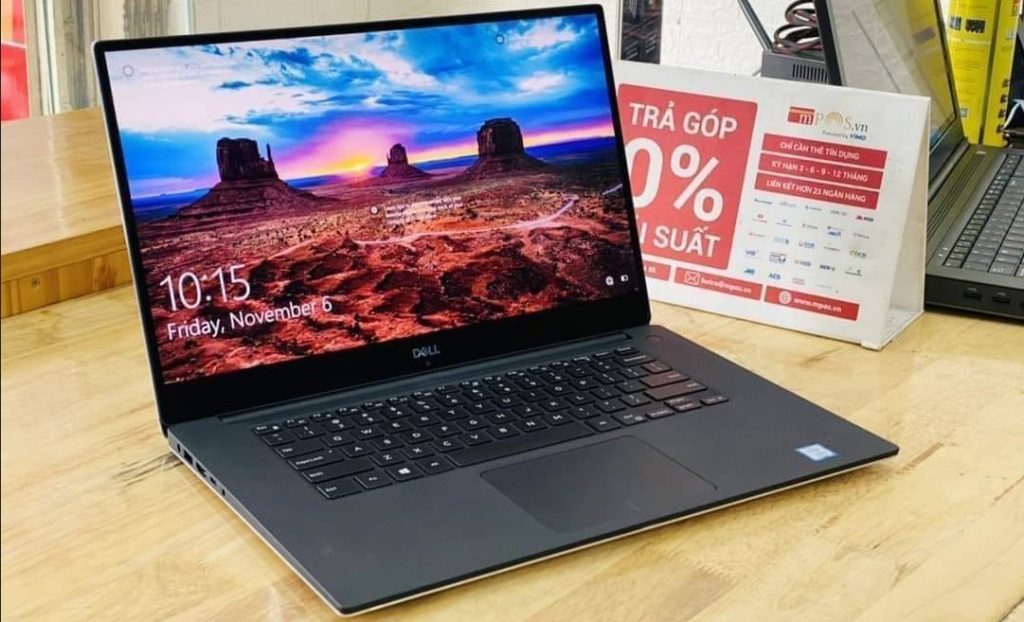
The Dell XPS 15 is a good choice for day traders just getting started, combining good performance and value. This laptop is valued due to its powerful processing capacity, backed with the latest Intel Core processors and ample RAM, guaranteeing the smooth running of trading applications.
The palm rest, made of black carbon fiber, was influenced by aerospace design and is meant to be cool to the touch while still providing maximum strength and the lowest weight. To maximize productivity, the XPS 15 is equipped with a big display, a spacious and ergonomic touchpad, and a keyboard illuminated from edge to edge and with large keycaps.
Specifications
- Processor: Intel Core i7-13700H
- RAM: 16GB
- Storage: 512GB SSD
- Display: 15.6” FHD+ (1920 x 1200)
- GPU: NVIDIA GeForce GTX 1650Ti
Pros
- High-resolution display ensures clarity in chart analysis
- Powerful processor coupled with ample RAM to help you with multitasking
- Solid build quality
Cons
- Slightly costlier for beginners
- High-performance configuration reduces battery life
- Limited ports for external connectivity
Apple MacBook Pro 14
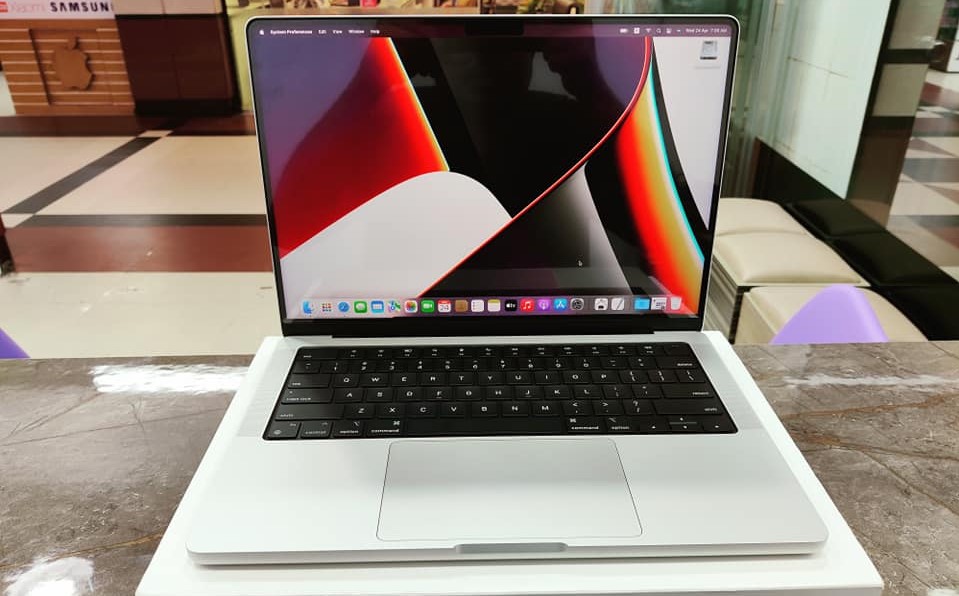
Apple MacBook Pro 14 is among the best day trading laptops for traders who prefer MacOS due to its high-speed processor and excellent retina display. This laptop is liked by professionals due to its ability to handle trading apps efficiently and ease of multitasking.
It further encompasses a touch ID and light sensor in the room. You can use the Force Touch trackpad to precisely move the pointer and sense pressure. It also supports Force clicks, accelerators, pressure-sensitive writing, and Multi-Touch motions.
Specifications
- RAM: 16GB
- Processor: Apple M1 Pro
- Display: 14-inch Liquid Retina XDR display
- Storage: 512GB SSD
- GPU: Integrated 16-core GPU
Pros
- Stunning display with high color accuracy
- Exceptional battery life
- Powerful M1 Pro chip, optimized for top-notch performance
Cons
- Steeply priced
- Limited ports for external connectivity
- Ecosystem lock-in and less flexibility with non-macOS software
Asus ZenBook 13
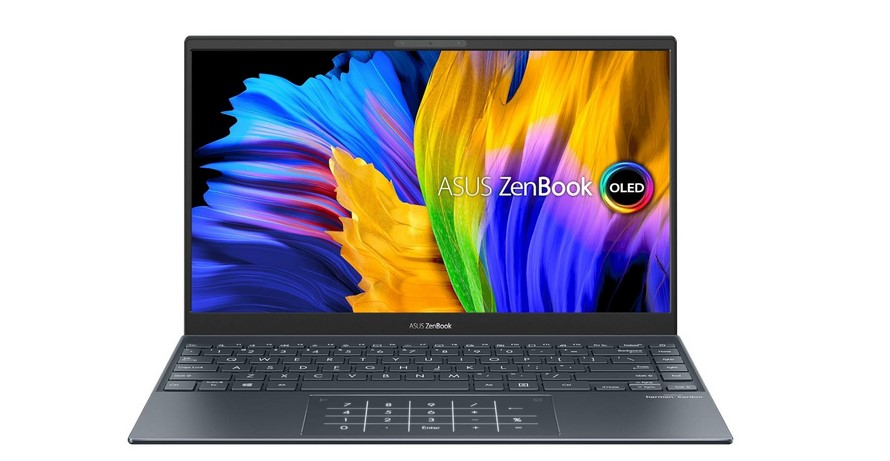
Asus ZenBook 13 is also among the best day trading laptops. Despite being quite compact and small in size, it delivers top-notch performance to handle tedious computing tasks. Unmatched battery life and the lightweight design of this laptop make it an ideal choice for traders who require a high-end but mobile option.
Specifications
- Processor: Intel Core i5-1135G7
- Display: 13.3-inch OLED FHD
- Storage: 512GB SSD
- GPU: Intel Iris Xe Graphics
- RAM: 8GB
Pros
- Incredibly lightweight and portable
- The OLED display offers excellent contrast and color accuracy, making it easier to see details on charts and graphs
- A budget-friendly option with decent performance
- Exceptional battery life
Cons
- The lack of a dedicated GPU is not ideal for highly intensive algorithmic trading or complex trading tasks
- 8GB RAM seems insufficient for complex technical analysis
Lenovo ThinkPad X1 Carbon
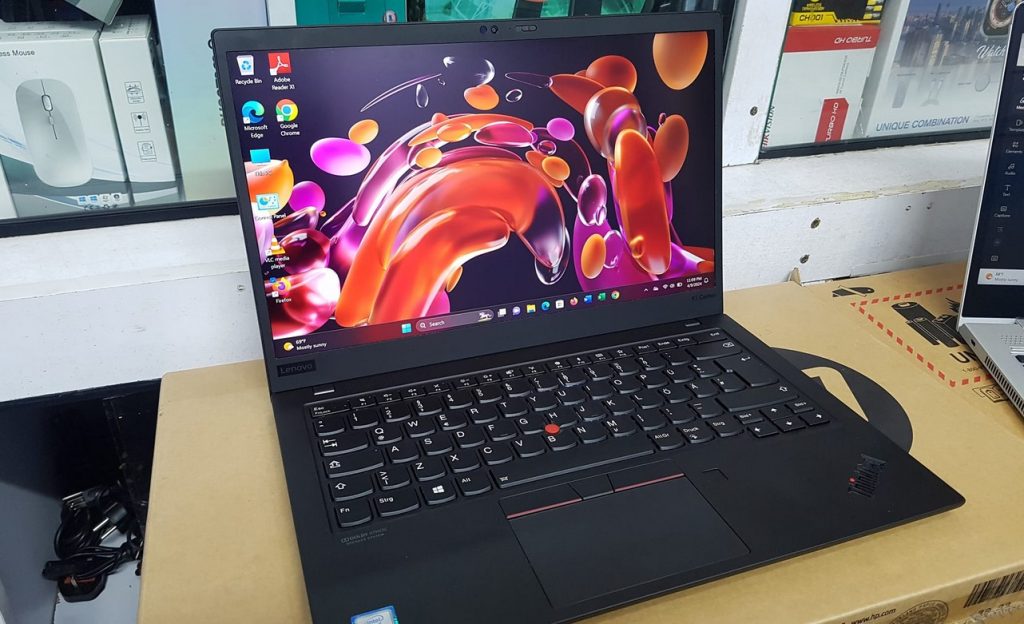
With its rugged build and business features, the Lenovo ThinkPad X1 Carbon is perfect for traders who value reliability and state-of-the-art security. Its performance is supported by advanced security functions and a sturdy build.
Specifications
- RAM: 16GB
- Display: 14-inch FHD+ (1920 x 1200)
- Processor: Intel Core i7-1165G7
- GPU: Integrated Intel Iris Xe Graphics
- Storage: 1TB SSD
Pros
- Highly durable build quality
- High-performance CPU coupled with 16 GB of RAM for stable performance
- Boasts security features like fingerprint readers and TPM chips for enhanced data protection
Cons
- Slightly expensive compared to other laptops with similar specs
- No dedicated graphics aren’t ideal for demanding graphics work
HP Spectre x360 14
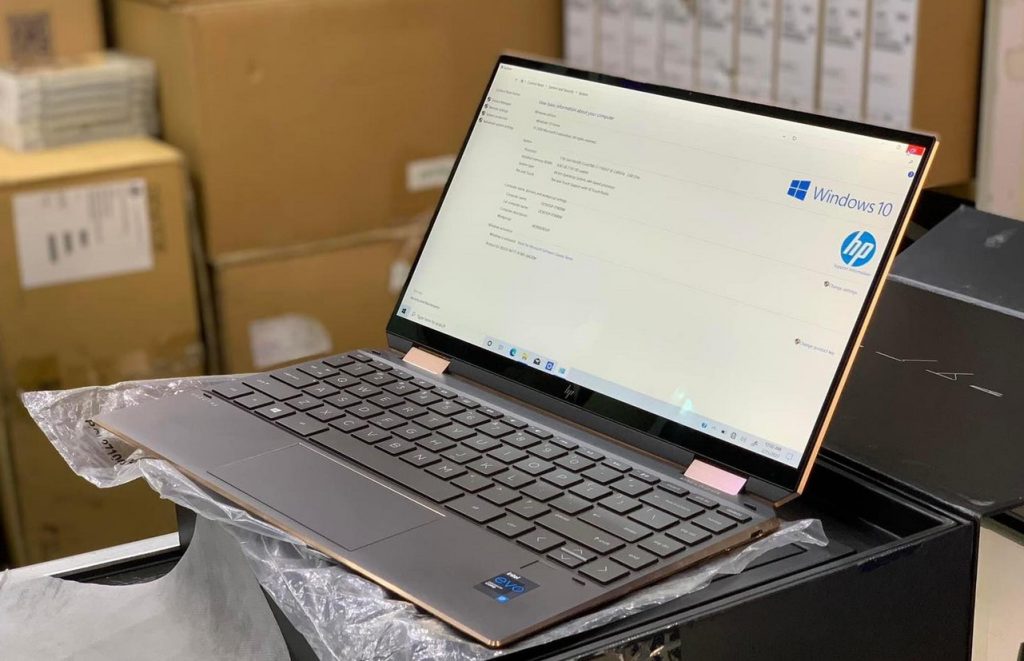
HP Spectre x360 is a perfect choice for day trading due to its 2-in-1 flexibility. It can be used as both a laptop and a tablet, making it ideal for those seeking a portable machine.
Specifications
- Storage: 1TB SSD
- Display: 13.5-inch FHD touch
- Processor: Intel Core i7-1165G7
- RAM: 16GB
- GPU: Integrated Intel Iris Xe Graphics
Pros
- Luxurious design with a thin and light aluminum chassis
- Its 360-degree hinge allows you to use it as a laptop, tablet, or tent mode
- Durable battery life, allowing you to work for extended periods without needing to plug in
Cons
- It is a premium laptop with a higher price tag
- Although it is powerful, it doesn’t support many upgradability options
- Gets slightly warm under heavy load
Acer Swift 3
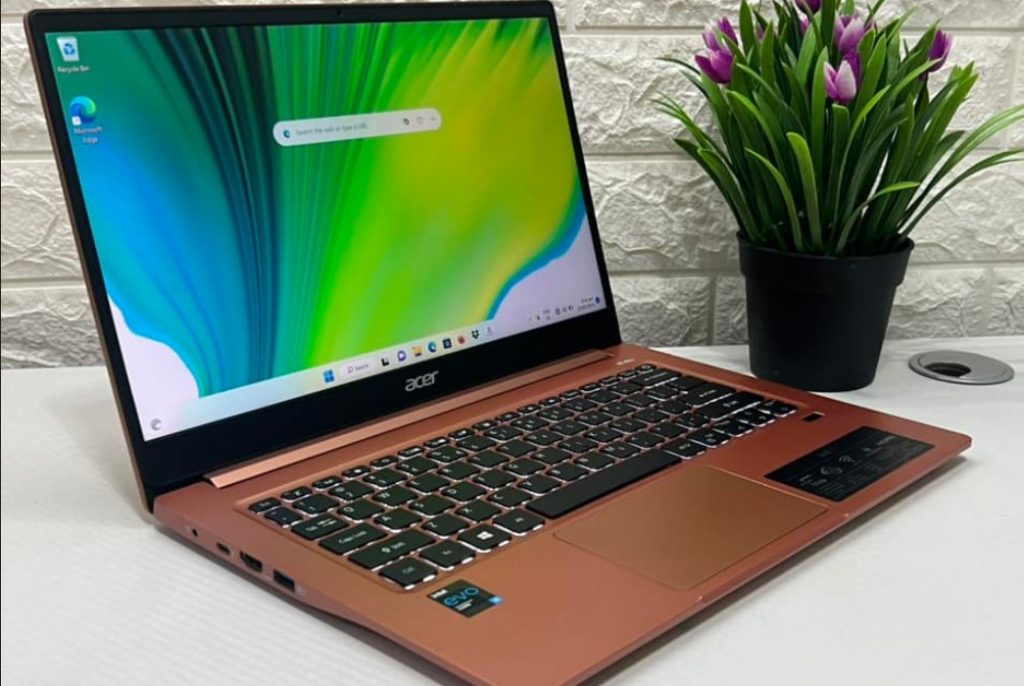
If budget is a concern but you still need a decent laptop for day trading, the Acer Swift 3 would be the perfect choice. The base model is packed with a mid-performing configuration, offering you sufficient performance for day-to-day trading tasks. However, I’d recommend going for its 16 GB variant as that would help you with multi-tasking.
Specification
- RAM: 16GB
- Display: 14-inch FHD (1920×1080)
- Storage: 512GB SSD
- GPU: Integrated AMD Radeon Graphics
- Processor: AMD Ryzen 7 4700U
Pros
- Capable processor to handle multiple trading platforms, data analysis, and basic multitasking smoothly
- Sufficient memory to run demanding trading applications
- The lightweight design makes it easy to carry around
Cons
- The integrated AMD Radeon Graphics is not suitable for highly intensive algorithmic trading or complex charting
- It slightly overheats under sustained load, impacting performance
- The display is not as vibrant as higher-end models
Microsoft Surface Laptop 4
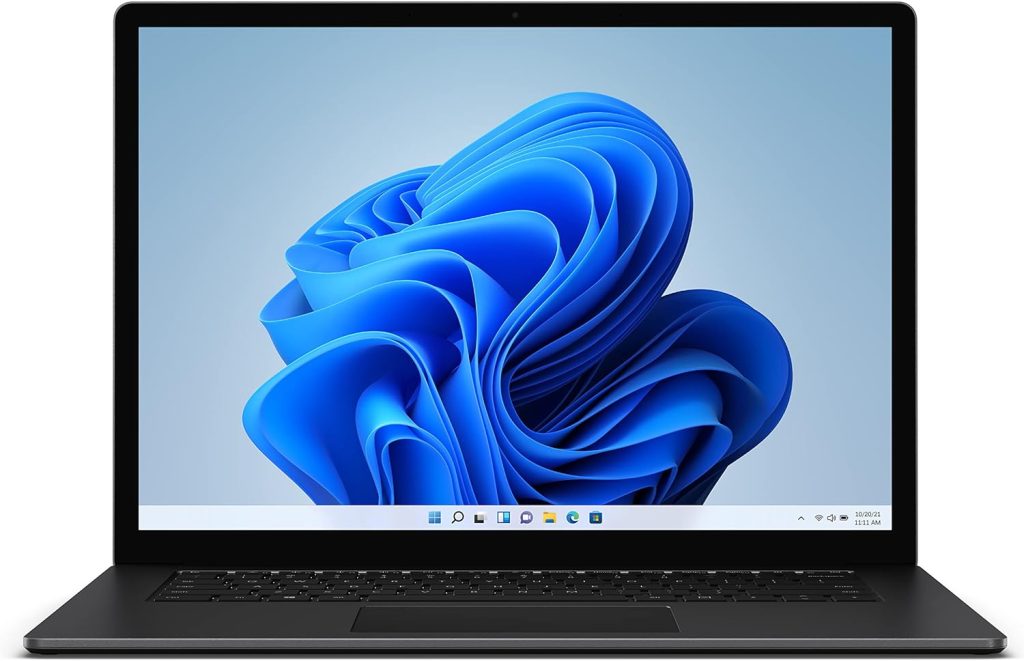
Microsoft Surface Laptop 4 is also among the best day trading laptops. It is a stylish gadget for an elite player who treats form as important as function. It unifies speed, productivity, and an elegant look in a high-performing laptop oriented toward trading and business applications.
Specifications
- RAM: 16GB
- Storage: 512GB SSD
- Processor: Intel Core i7-1185G7
- Display: 13.5-inch PixelSense touch
- GPU: Integrated Intel Iris Xe Graphics
Pros
- The elegant design with a touchscreen display
- High-performance Intel Tiger Lake processor for top-notch performance
- Good battery life and fast charging support
Cons
- Limited connectivity ports
- Lack of dedicated GPU
Alienware m15 R6
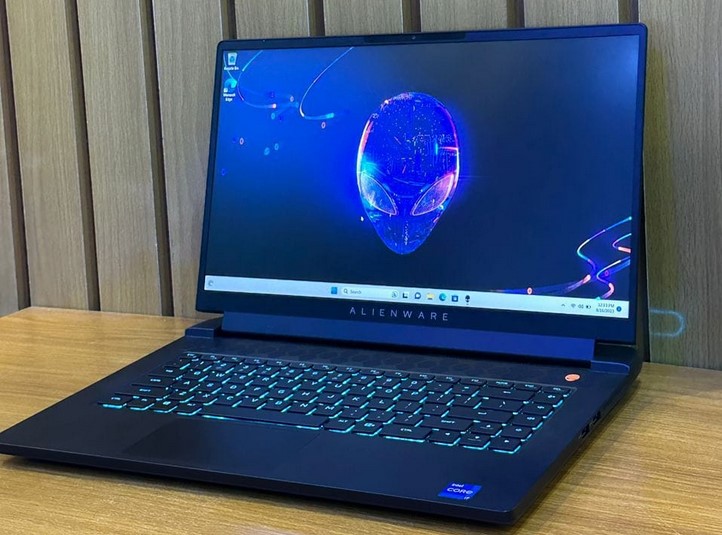
The Alienware m15 R6 is the best option for those who require extremely high performance to run several heavy trading applications and data streams simultaneously. Its superior specifications guarantee that it can perform the most difficult tasks.
Its dedicated GPU ensures that you can run tasks that require heavy graphical computational requirements. It is especially important when working with complex trading algorithms and charts in order not to miss any price movements.
Specifications
- Storage: 1TB SSD
- Processor: Intel Core i7-11800H
- Display: 15.6-inch FHD (1920×1080)
- RAM: 32GB
- GPU: NVIDIA GeForce RTX 3060
Pros
- Exceptional processing power for running multiple demanding trading applications, complex technical analysis with heavy data feeds, and smooth multitasking
- High-resolution display provides excellent clarity, sharp visuals, and a smooth user experience
- Offers upgradability options, including RAM and storage
- Robust build quality with premium materials like magnesium alloy chassis
Cons
- Being a gaming laptop, the m15 R6 is a bit heavier and thicker
- Offers a very decent battery life
Razer Blade 15
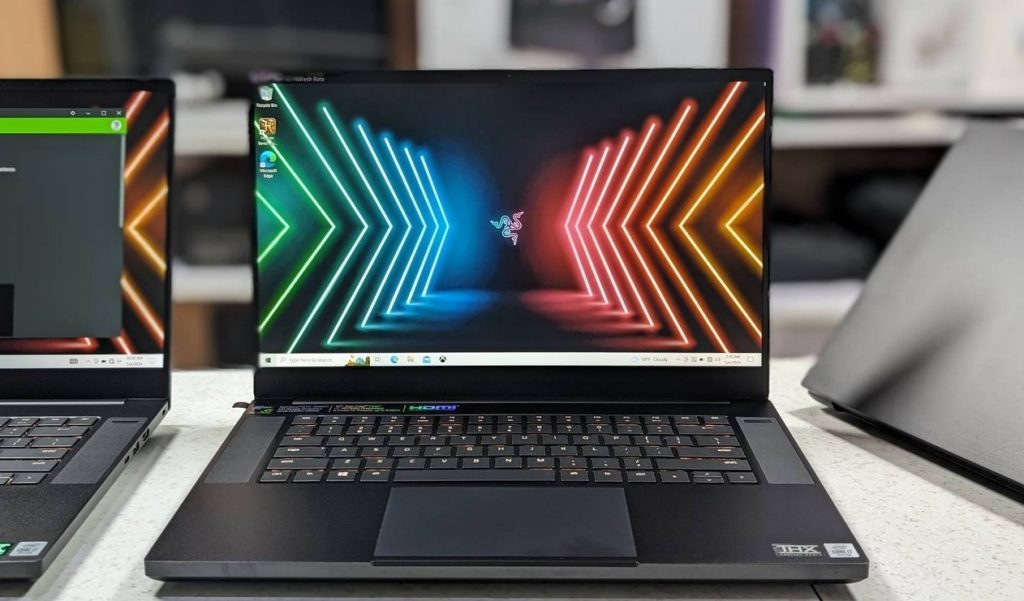
The Razer Blade 15 is a sleek, high-performance laptop featuring a 15.6-inch QHD display with a 165Hz refresh rate, ideal for day traders needing smooth, real-time chart updates. Its Intel Core i7 processor and NVIDIA RTX 3070 GPU ensure effortless multitasking.
Specifications
- Processor: Intel Core i7-11800H
- RAM: 16GB
- Storage: 1TB SSD
- Display: 15.6-inch QHD (2560×1440), 165Hz
- GPU: NVIDIA GeForce RTX 3070
Pros
- 2K display with high-refresh-rate for seamless data visualization
- Powerful processor and GPU
- Sleek, lightweight design
Cons
- It is priced on the expensive end
- Limited ports for external devices
MSI GE66 Raider
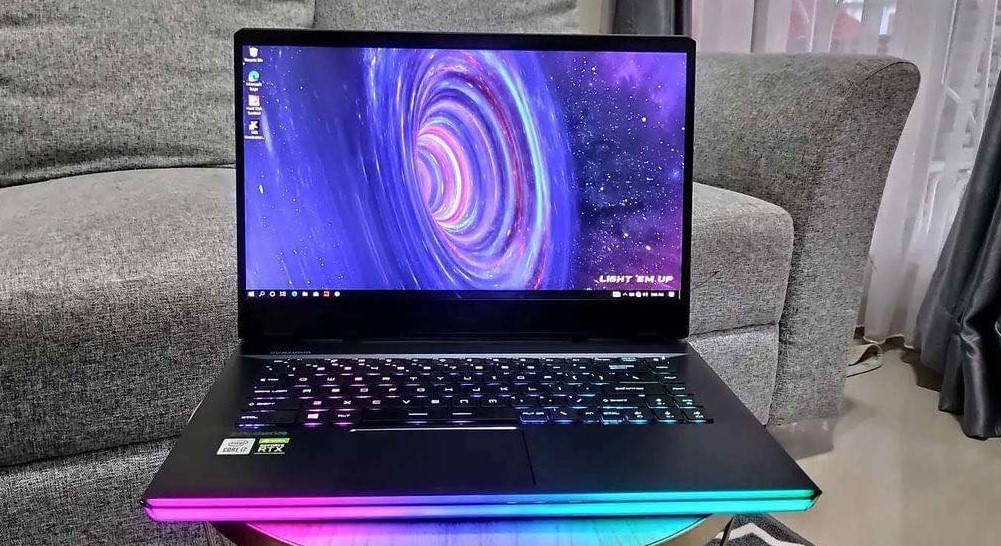
The MSI GE66 Raider is primarily popular for its gaming performance, but its high-end configuration makes it a perfect laptop for day trading. It further supports the multi-monitor option to help you run different data charts on different displays.
Despite being a gaming laptop, it is quite compact. That’s why it gets slightly warm when you put its GPU and CPU under heavy stress, but its ventilation ports do a fantastic job of ensuring you don’t feel that warmth, especially for trading-related tasks.
Specifications
- Processor: Intel Core i9-11980HK
- RAM: 32GB
- Storage: 1TB SSD
- Display: 15.6-inch FHD (1920×1080), 240Hz
- GPU: NVIDIA GeForce RTX 3080
Pros
- Superior processing power for multitasking
- Higher refresh rate for fluid visuals
- Multiple ports for external monitors and other connections
Cons
- Heavier and less portable
- Expensive compared to other options
How to select the right day trading laptop for you?
Selecting the right laptop for day trading involves considering several vital aspects –
- Processor: The processor is the heart and soul of your machine. When it comes to laptops for day trading, the processor should be powerful enough to handle multiple applications and browsers. I’d recommend going for at least a 12th-generation Intel Core i5 or equivalent processor.
- RAM: When it comes to RAM, always consider picking the one that offers the highest frequency. Since we are talking about laptops, you should go with a configuration that offers around 16 GB of RAM clocked at around 3000 MHz. In my opinion, 16GB RAM would be more than sufficient for mid-level multitasking.
- Storage: Always choose laptops with SSDs as primary storage devices. SSDs offer significantly faster read and write times, improving application load time while boosting overall performance.
- Display: You don’t always need a 240 Hz display for day trading. I recommend picking a laptop with a decent IP panel display with a higher resolution, according to your budget.
- GPU: GPU is arguably the most important thing for day traders, especially for those who use their laptops for complex technical analysis with heavy data feeds and graphically demanding software. If that’s the case, go with a laptop that boasts 4 GB GTX 1650 or equivalent GPU.
If your goal is to build a dynamic crypto portfolio with day trading, I’d recommend investing at least around $1000 to buy a day trading laptop. At that budget, you can get the best configuration needed for most day trading tasks.
However, if your trading needs require you to run multiple CPU and GPU-demanding trading applications, complex technical analysis, and highly intensive algorithmic trading tasks, then you should consider going for a desktop computer for day trading.
FAQs
What is the best laptop for day trading stocks?
The best laptop for day trading entirely depends on your budget and needs. That said, if you have a good budget, then the Alienware m15 R6 is the perfect laptop for day trading, as it boasts a high-performance configuration.
What kind of laptop do I need for day trading?
Since companies don’t design laptops specifically for day trading, you should go with laptops that offer powerful performance and good specs.
Can you day trade with just a laptop?
Yes. You can day trade with just a laptop. Just ensure that your laptop meets the required performance criteria.
Tags
Day Trading- Bitcoin Falls to $65K as Mt. Gox Transfers $2.8 Billion BTC to External Wallet
- News of Marathon Digital’s $138 Million Fine for Breach of Non-Disclosure Agreement Triggers a Bearish 2.5% of Its MARA Stock
- Are $530M Bitcoin ETF Inflows a Blessing or Caution?
- Metaplanet Teams with Hoseki for Real-Time Bitcoin Holdings Verification
- 10 Best Meme Coins To Invest in 2024
- Building Secure Blockchain Systems: An Exclusive Interview with ARPA and Bella Protocol CEO Felix Xu
- Building The “De-Facto Crypto Trading Terminal”: An Exclusive Interview with Aurox CEO Giorgi Khazaradze
- Building a New Global Financial System: An Exclusive Interview With Tyler Wallace, Analytics Head at TrustToken
- “Solana is the Promised Land for Blockchain” — An Exclusive Interview with Solend Founder Rooter
- El Salvador: Where The Bitcoin Revolution Begins With A Legal Tender

 Why Trust Us
Why Trust Us